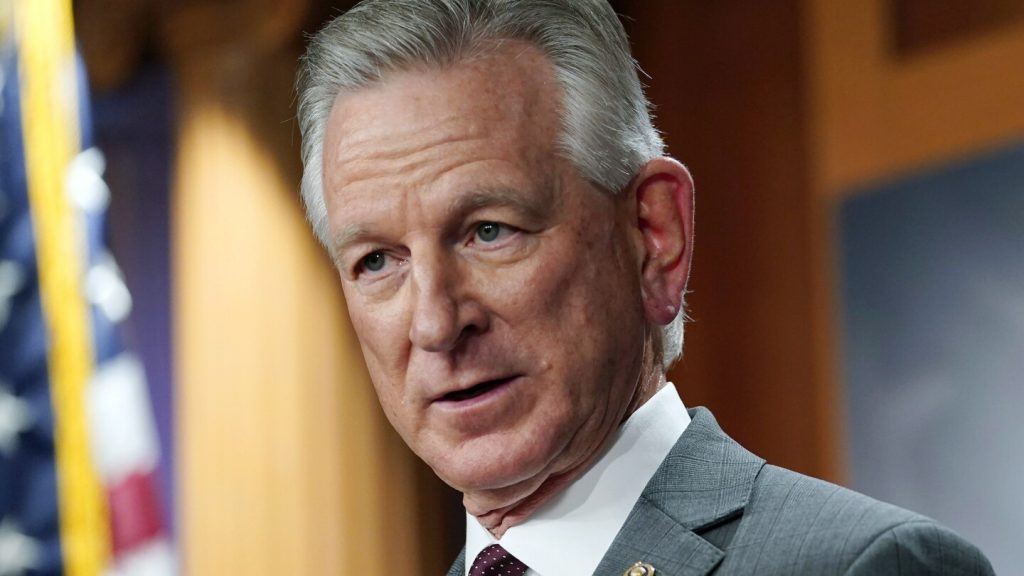Alabama Senator Tommy Tuberville is blocking the promotion of Lt. Gen. Ronald Clark to become commander of U.S. Army forces in the Pacific over concerns that he and other senior staff did not immediately notify President Joe Biden when Defense Secretary Lloyd Austin was hospitalized with complications from cancer treatment earlier this year. This move by Tuberville comes after he faced criticism last year for holding up military promotions over a Pentagon abortion policy. Republicans have criticized Clark for not informing Biden or other U.S. leaders about Austin’s hospitalization, which they claim could have led to confusion or delays in military action. Tuberville is waiting on a report from the Pentagon’s inspector general to review the matter.
Despite pressure from Republican colleagues and concerns about military readiness, Tuberville continues to hold up Clark’s nomination. Democrats could still bring Clark’s nomination up for a vote, but Tuberville’s hold is likely to delay the confirmation process. Pentagon spokesperson James Adams has stated that Tuberville’s hold undermines military readiness and that Clark is highly qualified for the position. If Clark is not confirmed by early January, the next president would have to renominate him or choose someone else for the post. Austin has faced criticism for initially keeping Biden in the dark about his health issues and hospitalization, but maintains that there were no gaps in control of the department or nation’s security during that time.
An earlier Pentagon review of the matter blamed privacy restrictions and staff hesitancy for the lack of transparency surrounding Austin’s hospitalization. Following the incident, the White House has implemented new guidelines to ensure that Cabinet heads inform them anytime they are unable to carry out their duties. These guidelines include instructions for Cabinet agencies to follow when there is a delegation of authority, such as when secretaries transfer their authority to a deputy due to medical issues or other reasons. The Pentagon has also made improvements to its procedures to prevent similar incidents from occurring in the future.
In response to Tuberville’s hold on Clark’s nomination, a spokeswoman for the senator, Hannah Eddins, cited concerns about Clark’s role during Austin’s hospitalization, specifically his failure to inform Biden. Eddins emphasized that as a senior commissioned officer, Clark’s oath requires him to notify the president when the chain of command is compromised. Despite the controversy surrounding Clark’s nomination, the Pentagon continues to urge the Senate to confirm all qualified nominees, including Clark. The delay in Clark’s confirmation process could have implications for military readiness and the overall functioning of the Department of Defense, as well as potentially impacting service members and their families.


